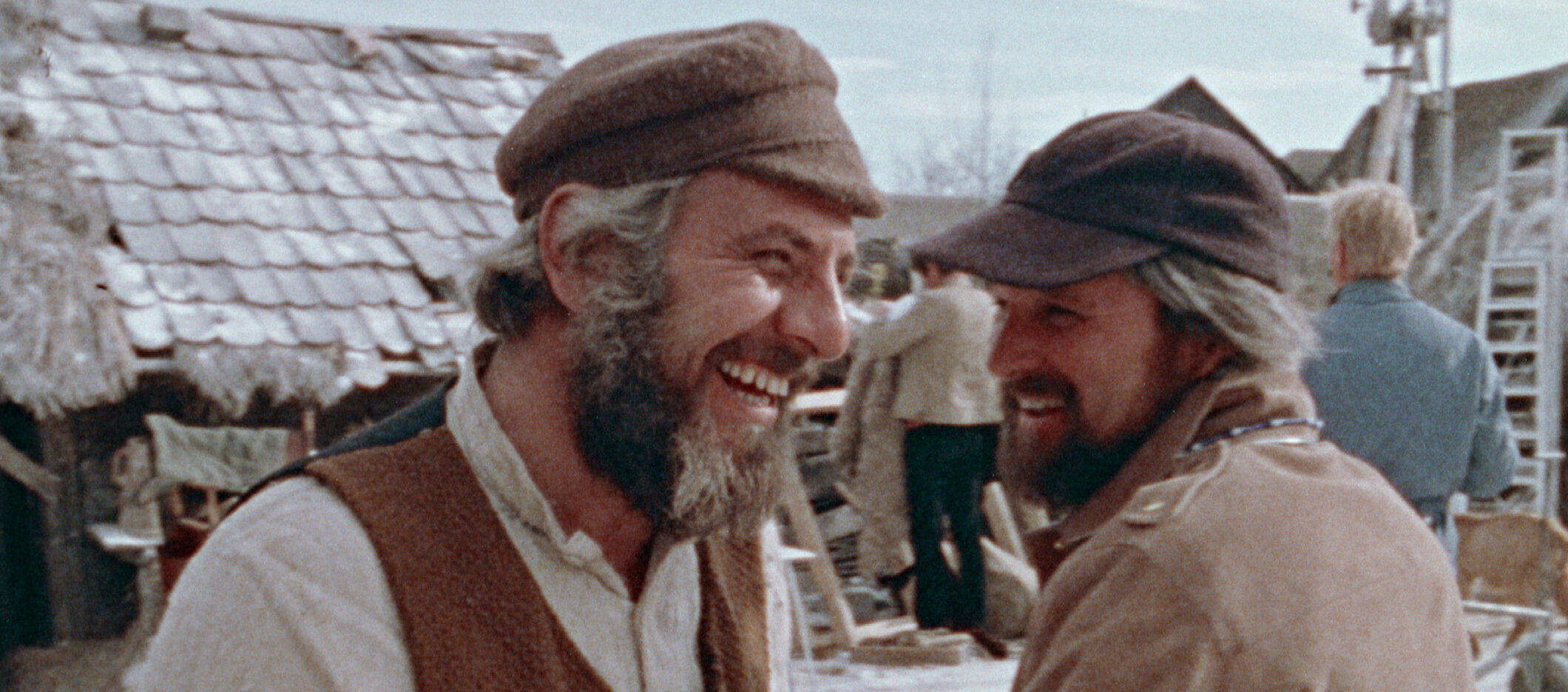How a self-proclaimed ‘goy’ named Norman Jewison made one of the most Jewish movies ever
Jewison, who died at 97, made ‘Fiddler on the Roof’ a big-screen phenomenon

Director Norman Jewison, right, and star Topol as Tevye on the set of the film version of Fiddler on the Roof. Photo by Zeitgeist Films in association with Kino Lorber
Like the tale of Tevye the milkman, the story has taken on a legend of its own.
When producers were looking for a director to helm the film version of Fiddler on the Roof, they approached Norman Jewison. Who else to direct it but a man whose name sounds like “Jewish son?”
Jewison, who died Saturday at 97, often recalled what he told producers: “What if I told you I’m a goy?”
There was disbelief in the room. Norman Jewison a goy? He was, but that didn’t stop him from making one of the most beloved Jewish films of all time.
Jewison, as related in his memoir This Terrible Business Has Been Good to Me, and in documentaries like Fiddler: Miracle of Miracles and Fiddler’s Journey to the Big Screen, was raised Protestant in Toronto. He nonetheless felt a kinship with the Jewish people.
Indeed, his filmography, which includes the Academy Award-winning In the Heat of the Night (1967), an unsparing look at American racism, tracked with his lifelong concern for civil rights.
Jewison often said that he related strongly to Tevye, who, as written by Jerry Bock, Sheldon Harnick and Joseph Stein, was designed to have universal appeal. But it wasn’t just a superficial relationship. Making the film, Jewison did a deep dive into Jewish culture and, in eschewing the casting of Tevye’s originator, Zero Mostel, opting instead for the Israeli Chaim Topel, redefined the part for a new generation.
“It’s about the breaking down of traditions he wants to follow — all religions come with traditions,” Jewison said of Tevye in an interview with the American Film Institute. “Shintoism, Hindu, Muslim, Christianity — all religions, all forms of traditions go through changes, constantly.”
That common theme made it possible for Jewison, who next directed a musical closer to his own faith, Jesus Christ Superstar, to make Fiddler a hit. But it was his sensitivity, his iconic shots and even his uncredited voiceover as a rabbi, that helped make it a classic.
A message from our CEO & publisher Rachel Fishman Feddersen
I hope you appreciated this article. Before you go, I’d like to ask you to please support the Forward’s award-winning, nonprofit journalism during this critical time.
We’ve set a goal to raise $260,000 by December 31. That’s an ambitious goal, but one that will give us the resources we need to invest in the high quality news, opinion, analysis and cultural coverage that isn’t available anywhere else.
If you feel inspired to make an impact, now is the time to give something back. Join us as a member at your most generous level.
— Rachel Fishman Feddersen, Publisher and CEO